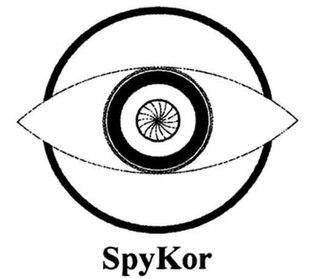Related Research Articles

A play-by-mail game is a game played through postal mail, email or other digital media. Correspondence chess and Go were among the first PBM games. Diplomacy has been played by mail since 1963, introducing a multi-player aspect to PBM games. Flying Buffalo Inc. pioneered the first commercially available PBM game in 1970. A small number of PBM companies followed in the 1970s, with an explosion of hundreds of startup PBM companies in the 1980s at the peak of PBM gaming popularity, many of them small hobby companies—more than 90 percent of which eventually folded. A number of independent PBM magazines also started in the 1980s, including The Nuts & Bolts of PBM, Gaming Universal, Paper Mayhem and Flagship. These magazines eventually went out of print, replaced in the 21st century by the online PBM journal Suspense and Decision.
Starweb is a closed-end, space-based, play-by-mail (PBM) game. First published by Flying Buffalo Inc. in 1976, it was the company's second PBM game after Nuclear Destruction, the game that started the PBM industry in 1970. Players today can choose a postal mail or email format. Fifteen players per game assume one of six available roles and explore and conquer planets within a universe comprising 225 worlds. The object of the game is to attain a predetermined number of points which are generated by various actions during gameplay. Multiple game variants are available. Starweb is still available for play as of 2021 through the company Rick Loomis PBM Games.

Flagship is an independent magazine for gamers that was published from 1983 to 2010. Published bimonthly in the UK, it started in 1983 for play-by-mail game (PBM) players. The magazine also had a United States edition. In 2002, it expanded coverage to encompass other types of games such as boardgames, card games, computer games, and others. Nicky Palmer was the founding editor, with Carol Mulholland assuming editorial duties as of issue No. 70. The magazine ceased publication in 2010 after issue No. 130.

Legends is a turn-based, role-playing game with a medieval setting. It is currently published in English by Harlequin Games. Jim Landes—owner of Midnight Games, the game's first publisher—began developing the game in 1984, eventually publishing it in December 1989 as a play-by-mail (PBM) game after over a year of playtesting. The initial game comprised a module and game system built on the publisher's existing game, Epic, and was run briefly as Swords of Pelarn before publication as Legends. The first of multiple game modules was Crown of Avalon, which allowed up to 200 players per game. Demand by 1991 was "incredible" according to Bruce R. Daniel in White Wolf. Games could be lengthy, initially between three and ten years of play, settling into an average of three years by 2002.
Pellic Quest was a computer-moderated science fiction play-by-mail (PBM) game appearing as early as 1978. Conflict Interaction Associates published it as a spinoff of Flying Buffalo's game Starweb. In the game, 10–15 players competed to dominate a universe strewn with artifacts left by a super-race, the Pellics. Players role-played one of six character types with options to develop their position, expand through conquest, conduct diplomacy, and other actions. The game received generally positive reviews in gaming magazines in the late 1970s and early 1980s. The publisher appeared to close the game by 1988.
Zorphwar is a play-by-mail game that was published by Zorph Enterprises.

Heroic Fantasy is a computer-moderated, dungeon crawl play-by-mail game. It has been active since 1982 when it was published by Flying Buffalo. The initial edition involved nine dungeon levels. Flying Buffalo published subsequent editions due to challenging gameplay initially, eventually limiting the game to four dungeon levels with a fifth outdoors level where players can assemble an army and capture one or more castles. The game is open-ended; gameplay continues until players decide to stop.

Hyborian War is a play-by-mail game published by Reality Simulations, Inc. It takes place during the Hyborian Age in the world of Conan the Barbarian created by Robert E. Howard. The game has been continuously available for worldwide play since its inception in 1985 and has changed little in its overall format. It uses a computer program to adjudicate player orders. Although it relies on postal mail or email and has turnaround times which are relatively long for the digital age of video games, Hyborian War has remained active into the 21st century.
Illuminati is a computer-moderated play-by-mail game published by Flying Buffalo Inc. It is based on the Illuminati card game by Steve Jackson Games. It was originally owned by Adventure Systems but transitioned to Flying Buffalo Inc in 1986. The game's central focus is on conspiracy and intrigue and involved 24 players playing either by email or by mail in turns processed simultaneously by computer. Illuminati has won the Origins Award for Best Play-By-Mail Game seven times, once in 1985 and six times in the 1990s, and was inducted into the Origins Hall of Fame in 1997.
Midgard is an open-end, medieval fantasy play-by-mail game. It was published in 1984 by Time Space Simulations. Through 1996, the game passed through more than four different publishers, including Midgard USA. As of 2022, Talisman Games is the publisher. At initial publication, Midgard was computer moderated with partial human moderation.
Lords of the Earth (LOTE) is a play-by-email game, first published by Thomas Harlan in 1983 during a growing era of PBM games. Initially played by postal mail, the game featured mixed moderation—computer moderated with some human assistance. By 2002, the publisher processed turns by email (PBeM). Lords of the Earth comprises multiple campaigns, each one a separate game. Campaign 1 is the oldest, set in the mid-1800s in the "Age of Air and Steam". Other campaigns begin from 2000 BCE to 1400 CE. Settings were global in scale, with one campaign featuring an outer space setting.

Quest is an open-end, fantasy, play-by-mail (PBM) role-playing game. Initially released in the United Kingdom in 1991, by Adventures by Mail, it later became available for play in the United States, Australia, and other countries in Europe. The game has a First and Second Age, initially comprising about twenty worlds of up to 1,000 parties controlled by players. After the year 2000, the worlds consolidated into four. The current publisher is KJC Games.
Firebreather is a heroic fantasy, play-by-mail (PBM) game.
Atlantrix is a fantasy roleplaying, play-by-mail game. First published by Atlantrix in 1984, it was later published by Battle-Magic Gaming.

Takamo is a open-ended, computer moderated, space-based play-by-email (PBeM) game. Advent Games launched it as a play-by-mail game in 1982 with a subsequent game, Takamo II, in 1990. Takamo saw a break in play in 1996–1997, after which it restarted as a PBEM game in 1998. By 2001, Aleator Games was publishing the game for play online. The game remains available for play online for free as of October 2023.
Venom is a closed-end, computer-moderated, play-by-mail (PBM) wargame. It was published by Game Systems, Inc. in 1989. Twenty players role-played demigods battling for supremacyby developing their position and winning a final battle. Demigod characters were highly customizable in the manner of spaceships for space-based PBM games. The game received generally poor reviews before the publisher revised the game in 1990 which improved the game according to one reviewer.
Starglobe is a space-based play-by-mail (PBM) role-playing game. It was open-ended and both computer and human moderated. Time Patterns began publishing the game in the United Kingdom in 1983. U.S. licensees included Superior Simulations and Dragonbyte. Time Patterns stopped publishing in 2000. The game's setting is a cluster of 2,000 stars. Gameplay begins at the player's homeworld called Monde. Expansion to other worlds and systems is central, led by the ambitious, morally questionable, Monde-based "Company". Players have a variety of roles they can play as starship captains. Lacking a rulebook or list of orders, players had significant leeway in gameplay and could obtain further game information through text modules obtained during gameplay. The game adhered closely to the theory of relativity, limiting the speed of travel and other aspects of gameplay.

SpyKor is a closed-end, computer-moderated, play-by-mail game. A game of low-medium complexity, it was published by Sudden Asylum, of Pflugerville, Texas and playable by mail or email. The game had a near-future setting. Eight players acted as the CEO of massive corporations vying for global domination through varying means, including war, espionage, and economics. The game received generally positive reviews in gamer magazines in the 1990s.
Thunder at Sea is a closed-ended, computer moderated, play-by-mail (PBM) naval wargame. It was published by Command Authority Games and Coconut Council in the United States and Paul Webber in the UK. The game was set in the period 1906 to 1945, using various historical scenarios.
References
- ↑ Rodgers 1995. p. 9.
- 1 2 Mitchell 1998. p. 7.
- 1 2 3 4 5 6 7 Ayers 1995. p. 4.
- ↑ Rodgers 1994. p. 73.
- ↑ Rodgers 1995. p. 6.
- 1 2 Ayers 1995. p. 5.